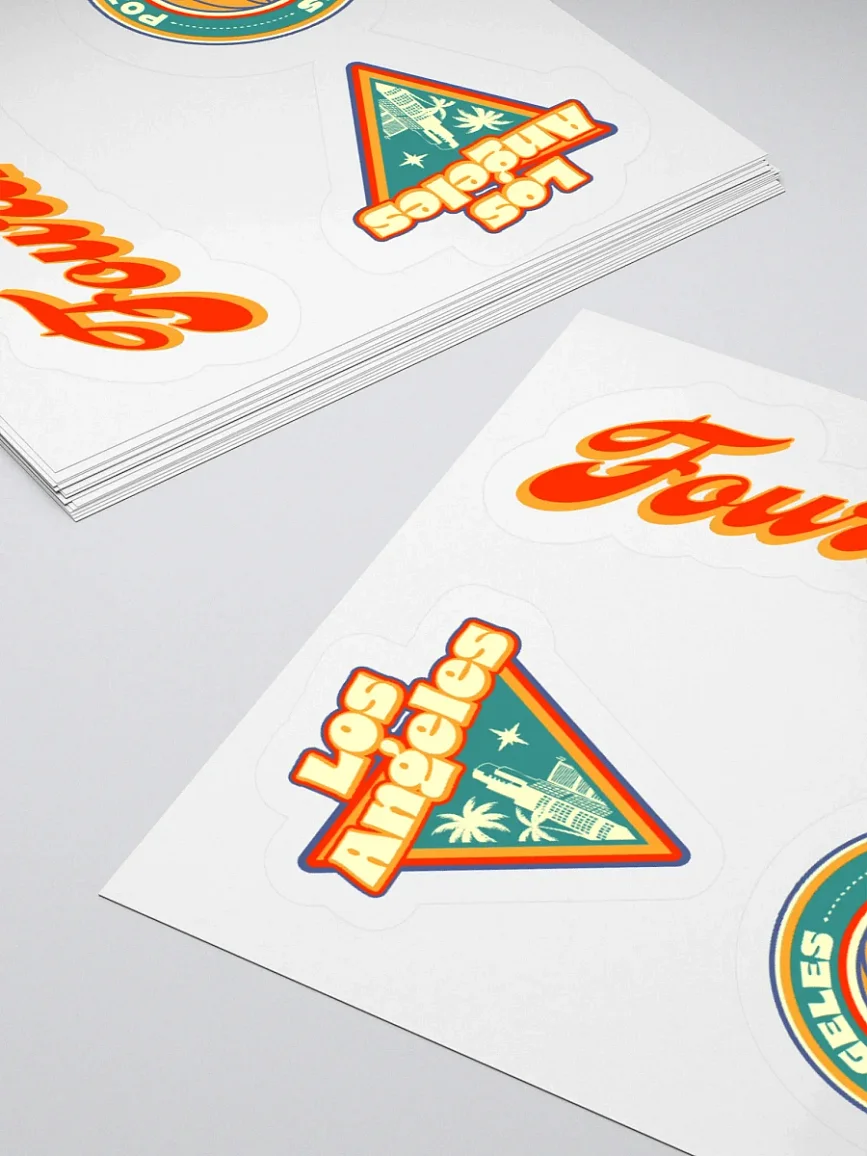How to Make Money with Art: Ideas for Artists

If you love creating art but you’re struggling to figure out how it can generate revenue, this is the article for you.
This guide explores various strategies for independent artists to reach a larger audience - from art fairs, fine art galleries, and marketplaces to online art blogs, art contests, and ecommerce stores - so you can sell art online, make money, and earn a living doing what you're passionate about.
The intersection of art, the internet, and ecommerce opens up loads of new avenues for creating and selling art and turning it into a viable art business and sustainable revenue stream - and we're going to help you navigate them!
10 Ways to Make Money with Art
1. Selling Original Artworks
The traditional in real life (IRL) method of selling original artwork remains a viable option, where you place your original artworks in brick-and-mortar galleries, art fairs, creative marketplaces, and even enter it in art contests or art competitions. But don't ignore the many ways you can make money online with your art. Online galleries, personal websites, and platforms like Fourthwall, UGallery, Fine Art America, Saatchi Art, and Etsy provide the perfect spaces to showcase and sell your unique creations. And you can cross-reference the IRL and online versions, too; for instance, have a card printed that directs visitors from your IRL art fair booth to your Fourthwall or Etsy shop, in case they want to purchase more of your artwork after the event is over.

2. Selling Art Prints
Diversifying income through selling art prints is a smart strategy. Art fairs work for this too, of course, but platforms like Fourthwall and Etsy offer seamless solutions to sell art prints online, allowing artists to set up homepages, open shops, and sell high-quality printed and framed artworks or print-on-demand products with full control over pricing your online art. The beauty of this option is that you can even upload a high-res version of your artwork once, and allow it to be listed as a digital art print indefinitely for ongoing passive income.

3. Printing Your Art on Merch
Art-inspired merchandise, from T-shirts to mugs, is in high demand. Fourthwall helps facilitate this process, enabling artists to choose from a long list of high-quality products for customized merchandise, whether through print-on-demand online art or limited-run drops. Finding the perfect placement for your different works of original art - or creating brand new digital art to suit different types of merch - can be a fun and creative avenue for selling your digital art online and generating passive income. Other proven print-on-demand platforms include Etsy, Printful, and Printify.

4. Launching a Website
Sites like Etsy and Printful are great, but having your own website provides a centralized space for your online art portfolio, art blog, and the store where you're selling art online, and it allows you to really curate your brand and your narrative as a freelance artist. Whether you're pursuing fine art, photography, modern art, digital art, or graphic design, a good art website can also help you establish a more professional presence, sell digital art and physical products, and serve as a central location for your fans. Fourthwall is a great place to headquarter your artworks, showcase your artworks, earn money, and blog about your process.
5. Licensing Your Art
Explore licensing opportunities for your artwork! Licensing (which basically means you're "renting" your artwork to another company as the licensor so they can reproduce it) can see your art reproduced on everything from wall art prints to mugs, linens, or jigsaw puzzles, which are then sold by the licensee. A good art licensing deal with get your artwork placed and sold on products outside of your own website and/or store, providing another passive income stream while reaching an even broader audience.
6. Doing Art Commissions
Offering commissioned work tailored to clients' preferences is a personalized way to monetize your freelance art skills and sell art online. Social media posts, purchasing ads, and making announcements on your own website are all effective ways to attracting custom art commission requests, which can be basically anything that suits your art style; a charcoal sketch of someone's favorite horse, a request for a specific landscape painting, or a portrait drawing.
7. Crowdfunding Your Art
Engage your audience through crowdfunding platforms like Kickstarter or Patreon. Supporters can contribute to your artistic endeavors, fostering a community around your work and getting new eyes on your art online. You can even crowdfund to accomplish goals like paying for your application to a prestigious art fair, or getting financial support for your work on a larger art installation or longer-term art project. Sites like Patreon and Fourthwall also let you post an art blog about the progress of your crowdfunding project.
8. Teaching Art
Share your expertise by teaching art via art classes or tutorials to make money online. While you can teach IRL as well, platforms like Skillshare are essentially a digital global classroom where you can teach art to aspiring artists around the world, creating an additional income stream where you can make money by charging per class or per course. You could promote your own art classes by posting mini-tutorials or digital art blogs on platforms like YouTube or TikTok, to draw people over to Skillshare to check out your full list of available courses. Or you could even promote yourself as an art expert on your Fourthwall page, and offer exclusive art lessons and posts via your Fourthwall memberships.

9. Working as a Freelance Artist
Websites like Fiverr or Upwork can help connect independent artists with clients seeking specific artistic skills, so you can keep selling art online to make money even in formats you might never have expected. Some examples of this would include freelance work doing sketches for brochures or menus; artistic wall murals for restaurants or public works; photo shoots for family portraits; or decorative painting on furniture or buildings.
10. Streaming Your Process
Venture into video content creation, sharing your artistic process, insights, and behind-the-scenes footage. Livestreaming your art online as you create it can bring in an audience of your existing fans, plus new people intrigued by the whole artistic process. And letting your viewers feel like they're part of that process by chatting with them while you create can even encourage sales, as those viewers will feel more connected to your artwork. Those Vods can then serve as art blogs for people who may have missed your live event. Platforms like Twitch or YouTube can also help you monetize your content through ads, subscriptions, or sponsorships.
4 Tips to Success Online as an Artist
1. Invest in Your Art
Quality matters. Invest in good art supplies and quality equipment for photography and digital creation to enhance the overall presentation of your work. Money tends to make money; the more you earn, the more you can invest back in your work, increasing the quality and promotion of it, which should then help increase future sales as well.
2. Develop Your Artist Brand
Develop a consistent brand for yourself and your art online and offline. This includes a unique artistic style, a memorable logo, and a cohesive visual identity that sets you apart as you work to sell art online.
3. Engage with Your Fans
Foster a community around your art online by actively engaging with your fans , so you can convert them into superfans! Respond to comments, schedule meetups at art fairs, share the inspiration behind the artwork you're creating, host Q&A sessions, blog on platforms like Fourthwall or Patreon, and create a sense of belonging.
4. Optimize Social Media
Leverage platforms like Instagram, Pinterest, and TikTok for showcasing your art online. Utilize engaging visuals and hashtags to increase visibility, and to direct people to your headquarter sites like Fourthwall, Patreon, or Etsy.
FAQ
Can I sell my art online?
Yes, many platforms and websites, like Fourthwall, Etsy, Fine Art America, Saatchi Art, and UGallery support artists selling art online; you can sell digital art, or sell and ship the original physical versions. Creating your online store or utilizing platforms like Fourthwall provides a convenient way to reach a global audience and earn money.
Can I turn my physical art into digital products?
Absolutely. Platforms like Fourthwall and Etsy also support selling art online in the form of digital products. Artists can upload and sell digital items such as .png and .jpg files, MP3s and MP4s, PDFs, ZIP files for larger documents, and more; many of these items can become a good source of passive income.
Is there copyright for art?
Yes, artists automatically own the copyright to their original artworks. As you expand the ways that you can sell art online, registering your work further protects your rights and allows you to better control how your art is used.
From Canvas to Cash: Monetize Your Artistry with Fourthwall
The internet really does offer an expansive canvas for artists to monetize their creativity and sell art online. And in that space, Fourthwall emerges as a transformative platform, simplifying the process of website creation, e-commerce, and merchandising. It provides artists with the tools to for showcasing and selling art globally, unlocking new possibilities for artistic and financial growth.Ready to turn your art into income? Let Fourthwall be your partner in transforming your passion into a thriving online art business.
















